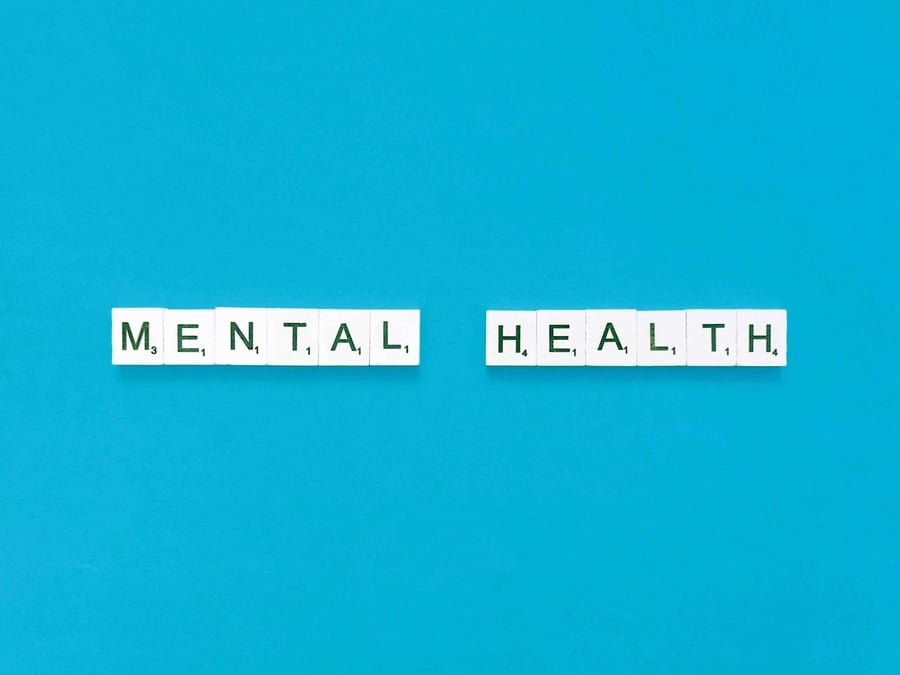Honor Mental Health Awareness Month by breaking stigmas
Table of contents
Mental Health Awareness Month is about prioritizing the mental well-being of yourself and others and bringing awareness to the cause. It serves as a great reminder to check in on yourself and those around you, but events like this month can only go so far when harmful misconceptions plague society and prevent people from seeking the help they need.
We asked KNB what is one common misconception about mental health that they wish more people understood, and how can we work to change this perception in society? Here are their answers below.
Laura Hill, Marketing Manager
A common misconception about mental health is that mental health issues are a sign of weakness or personal failure. Mental health challenges can affect anyone, regardless of their strength, intelligence, or character. Recognizing that mental health struggles are common and can happen to anyone helps to combat stigmatizing attitudes and encourages empathy and support.
Beth Cooper, Vice President of Marketing + Sales Healthcare PR
A common misconception about mental health care is that it is only needed by people who have been diagnosed with mental illnesses. This serves to further stigmatize seeking mental health care.
Mental health, just like physical health, exists on a spectrum for everyone. All individuals, irrespective of whether they have a diagnosed mental illness or not, can benefit from taking care of their mental health. This can involve strategies such as stress management, seeking social support, practicing mindfulness, exercising, and, if necessary, talking to a mental health professional.
We can all help shape the perceptions of mental health within our spheres of influence. Probably the most impactful action we can take is to be open and honest about our own mental health experiences, thereby normalizing conversations around the topic. The goal is to make caring for our mental health a normal, everyday activity that is accepted and even lauded.
Gaby Hermes, Operations Manager
Only people without friends need therapists. This common misconception tends to keep people from recognizing or admitting they need help. Therapists can be helpful for people with a variety of mental health problems, even if they have a strong support network. A mental health problem can be excess stress. Many employer benefits include EAPs (Employee Assistant Programs) that help manage stress, anxiety, and depression confidentially.
Emily Boland, Account Director
Building off of my colleague Gaby's comment, I think it's a common misconception that you need to have a diagnosed mental illness to seek counseling or therapy. Whether you have a history of mental illness or not, counseling and therapy are tools to keep your emotional well-being in check. Not to mention the added benefits counseling offers your personal growth, stress levels, and relationships.
By embracing, encouraging, and openly discussing therapy as a tool for self-preservation and betterment, we can help remove the stigma that it's only for those struggling, living, and surviving with a mental illness.
Bridget Saroff, Account Director
A common misconception about mental health is that seeking help means something is wrong with you or you are incapable of handling your own problems. Seeking help through a licensed mental health professional is a sign of strength, maturity, and dedication to your own personal growth.
Amy Roberts, Vice President of Communications + Client Services
Mental health is something you can control or fix if you just try harder or change your perspective. I’ve heard a lot of well-meaning (yet ill-informed) people suggest things like, “focus on the positive” or “think of how much worse it could be.”
If you would not suggest someone think or act a certain way to cure their cancer or another physical disease, it’s best not to suggest that as an antidote for a mental illness.
Remember, if you or someone you know is struggling with mental health issues, it is crucial to seek support from qualified professionals. They can provide the guidance and assistance needed to navigate challenges and promote overall mental well-being.
Search










